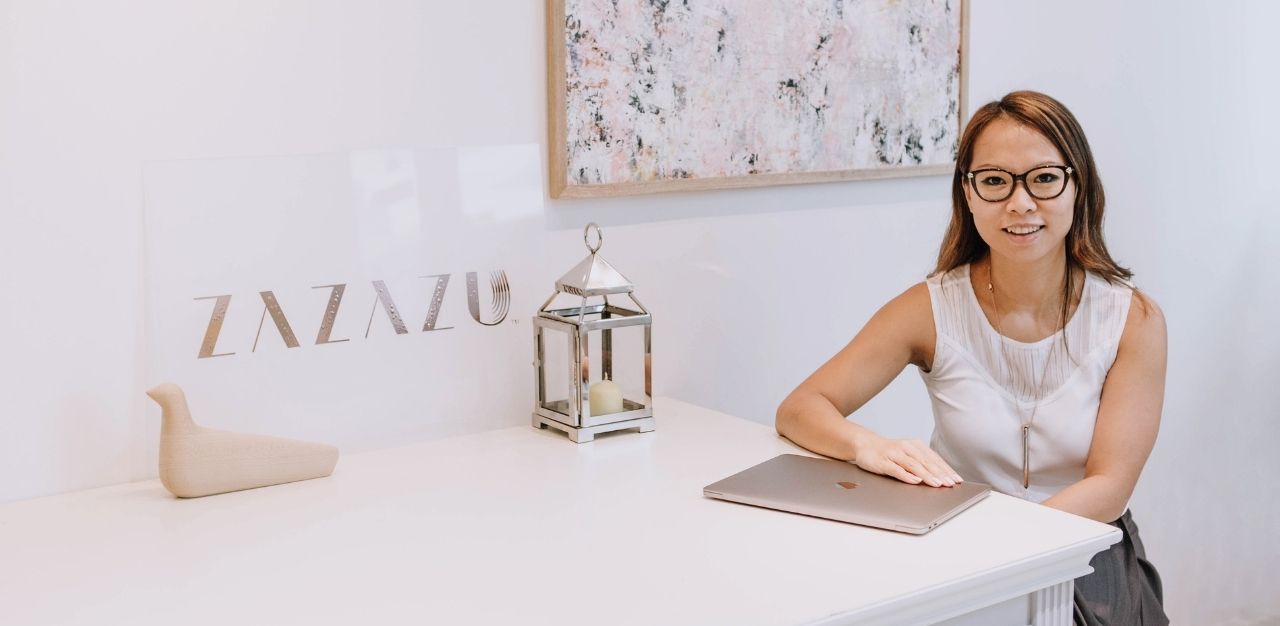When it comes to sex and pleasure, inequality is the name of the game. Studies have found that nearly three-quarters of women do not orgasm during sex, as opposed to only 30 per cent of men. Why does such a gaping disparity exist? In this two-part series, TheHomeGround Asia explores the taboos, circumstances, and landscape surrounding female pleasure and sexuality. First off, we address how open communication about sex and female pleasure (or the lack of) plays a role in the gender gap, its implications, and the evolving landscape in Singapore.
Raleigh (not her real name) is no stranger to the gender ‘orgasm gap’. With the three men she has had sex with over the years, not once has she climaxed during intercourse. Yet, almost every sexual encounter has ended with a male orgasm.
Likewise, Ranae’s (not her real name) first sexual encounters were less than desirable.
“I would leave sexual encounters feeling ‘dirty’, dissatisfied, and felt that sex was just a means for men to take something from me to satisfy themselves,” she shares.
The two women’s experiences are not unique, far from it, if research studies are any indication. In Singapore alone, an ongoing survey by sexual wellness platform ZaZaZu finds that out of 560 women, 75 per cent have never reached orgasm through intercourse.

Contemplating possible reasons for the disparity, Ranae muses: “I guess there’s a common narrative that sex ends once a man orgasms, so some men aren’t really invested in their female partner’s orgasms.”
While being unable to climax during sex made Raleigh doubt herself: “At first, I did wonder if there was something wrong with me, or whether it was a performance issue. [I questioned] why orgasms were so easy to achieve alone, but not with a guy.” But learning that she was not alone helped her to overcome these sentiments.
While no one knows for sure why the gap persists, the women we spoke to suggest that a lack of open conversation and communication channels about these issues could be a contributing factor.
The taboo of talking about sex
ZaZaZu’s survey finds that 60 per cent of women are uncomfortable expressing their sexual needs to their partners. This rings true even for Liu Jingjin, co-founder of ZaZaZu. Born and raised in China, Ms Liu grew up in a conservative environment where everything surrounding sex or female pleasure was taboo and unspoken.
One incident in particular stood out for her; one of her only encounters with sex as an early teen: A couple in her class faced expulsion as, their teacher had informed them, they were “eating the forbidden fruit”.
“This was something that impacted me a lot, and accompanied my [sexual journey] through my adulthood,” she says. “I learned in school that women who have sex, enjoy sex, or want to have sex, are bad girls.”

While Ms Liu moved to Germany in her teens and slowly began viewing female pleasure in a more positive light, her childhood experiences still restrict her at times: “Until today, I feel very shy to tell my husband [what I like]… It’s so established and manifested in your head. It’s very difficult to break that barrier.”
In Singapore, similar conservative mindsets remain despite the country’s “modern and progressive” facade, says sexual wellness advocate Janice Lee.
“There are a lot of taboos relating to talking about sex,” Ms Lee explains. “We’ve been conditioned in such a way [to believe] that sex is shameful, and it’s not good. It’s better to remain a virgin.”
Nadia, who prefers not to reveal her real name, agrees, “The notion of sexuality is hardly broached because it’s often perceived as something taboo and profane… The general aversion to these topics also planted this false and unhealthy idea that thinking about, talking or even engaging in your sexuality is wrong, as I was growing up.”
She adds, “Women are often criticised for being overtly sexual simply because they display a healthy level of comfort when discussing their sexuality, and such criticism is very apparent on social media these days.”
Growing up in such a society means that adolescents, like Veron (not her real name), who wanted to explore their sexuality and body struggled: “It was difficult and very ‘hush hush’, because it seemed wrong to even claim or possess that very aspect [sexuality] of our human nature,” she says.
Let’s talk about sex
The reluctance of adults to speak openly about female sexuality and pleasure to their children, or as part of sex education at school, often means kids turn to the internet for information.
Ms Lee warns that while some resources provide sound advice, people can just as easily turn to less-than-accurate sources, or pornography.
“Most people don’t have people that they trust to ask questions relating to sex and sexuality, so they discover all their information on the internet,” she says, “especially through porn, which is very misguided. There’s a lot of things in porn that’s dramatised.”
She adds, “But to people who don’t have any experiences and they don’t know how to ask, that is the only knowledge they know, then they go and practise it [in real life].”

Ms Lee explains that there is a disconnect when people take their learnings from pornography and try to implement it in real life, causing problems when they are unable to get an erection or climax, because they have become accustomed to the stimulation provided by pornography. Thus, there is a need for alternative spaces for people to share their sexual experiences, both good and bad, to bridge that disconnect.
Raleigh agrees: “Conversations are important sources of information, especially when one grows up in a non sex-positive environment.”
She recalls an unprotected sexual encounter that could have gone awry: “I managed to get Plan B [also known as the ‘morning-after pill’] in time, only after being urged by a friend after I’d shared with her about my [encounter]. Back then, I wouldn’t have thought it was important to get the pill if she had not talked to me about it.”
While Raleigh had managed to receive valuable advice by speaking to a friend, and had potentially prevented an unwanted pregnancy, the opposite can happen if open discussions about sex were avoided.
At the age of 21, Ms Liu found herself faced with the decision to have an abortion. She recounts, “At that time, in Germany, I still didn’t have the full picture from a female sexual health perspective. I was still scared to explore, so I didn’t have a safe abortion.”
Looking back, Ms Liu believes that if she had approached her parents, they would have likely encouraged her to return to China for a safe abortion, as it was more commonplace there in the early-2000s. And when she eventually divulged that part of her past to them more than 10 years later they were shocked, and echoed her wishes for better communication.

Normalising such conversations can also help alleviate the concerns of those unfamiliar with their sexuality.
“More people would be comfortable communicating their worries or curiosity, and feel more at ease about receiving information that may be pertinent to their concerns,” Nadia says. Otherwise, she adds, “A lot of people fear sexual intimacy due to their own uncertainties and either settle for experiences that are not as pleasurable or completely avoid such experiences altogether.”
And knowledge is the key to improving a woman’s sexual pleasure, which is instrumental in bridging the orgasm and masturbation gaps.
Ms Liu rationalises that if women never experience pleasure, they are unlikely to look for it: “If you have never tasted wine or durian, you wouldn’t miss the taste of it. This is the same for pleasure.”
According to her, ZaZaZu surveys have found that 80 per cent of women do not know whether they have ever climaxed, and explains that the reason is because women “don’t understand their body well.”
Another startling finding: 73 per cent of survey respondents were unable to point out where the clitoris is on a woman’s anatomy.
“When sexual education is bad, when society does not talk about it, one thing leads to another, and women generally don’t understand their bodies well enough to be able to explore [and achieve] sexual pleasure,” she says.
The importance of partner communication
Open conversations about sex also come into play within relationships: “The problem there is that if you don’t tell your partner what you like, they will never know,” says Ms Liu
Clients reveal to her that their husbands are doing things in bed they do not enjoy. But instead of saying so, they pretend to enjoy it so the sexual experience ends faster. Yet, when Ms Liu speaks to the husbands, they say that they genuinely believed that their wives enjoyed the acts they performed and kept doing it.

Defining what she fancies in the bedroom and how far she is “willing to take it” has improved sex with her partner, shares Veron: “I talk about it the most with my partner because it involves him directly, and it’s been the best there ever is for us.”
She adds, “Everyone has a different profile when it comes to sexual activity and pleasure. It requires even more finesse than a tailored suit, but it shouldn’t be daunting for a female’s partner. It’s all about communication, and a little bit more practise.”
No talk, no action
Frequency of sex and self-pleasure for women may also be impacted due to the lack of openness, says Ms Liu, which might shed some light on the masturbation gap between men and women – two surveys last year showed that women in Southeast Asia masturbated up to four times less than men
“Your friends don’t talk about it, you don’t talk about it. At the end of the day, you don’t have any impulse from outside to encourage you to have sex,” she explains. Even businesses struggle with advertising products that are related to sex or pleasure, she notes, which could further reduce the inclination for women to have sex.
She explains using an example of the power of suggestion: If you see a burger in an ad, it may plant a seed in your mind to order a burger for dinner. On the contrary, she says that because sexual wellness products are rarely advertised, if at all, sex and sexual wellness do not come to mind naturally.
Stimulating a more open and accepting society
But society appears to be opening up, with the women we interviewed observing that people, especially from the younger generation, are chatting about sexual pleasure and satisfaction more openly.
“Us girls and women seem to get access to more information these days,” notes Raleigh, citing talk shows and podcasts, like Something Private, that have gained popularity. “I think we’re on the right track,” she says.
Even so, some are concerned about the lack of exposure to issues surrounding sex, sexuality, and pleasure in mainstream media and school curricula.

“I didn’t learn much from sex education in school,” shares Raleigh. “I would much rather have been introduced to sex or sexuality-positive topics, such as asking for and giving consent, how masturbation is normal, support for different types of sexual orientations, or been provided information on contraceptives and even the Plan B pill – I had to self-learn through Google when I started being sexually active in university.”
Adds Ranae: “Teaching youths that abstinence is the only way to go is outdated. The curriculum should also incorporate detailed information about contraceptives, or how to have safer sex.”
She also suggests encouraging youths who are sexually active to get tested regularly for sexually transmitted diseases (STDs). And including a more comprehensive education about STDs rather than simply listing the symptoms, which stigmatise those who are infected.
Parents too have an important role to play, says Veron: “Parents of girls should teach them how to say ‘no’, and allow them to express themselves instead of suppressing it. Parents of boys should teach them how to practise care around a girl, to respect her space, and her.”
She urges: “Please don’t brush your kids off when they start expressing curiosity about sex to you. It takes a lot of trust and respect, and you wouldn’t want to break that… Understand where this curiosity is coming so that it can be addressed.”
Part two will be published on 14 June, when we explore the realm of female masturbation and sex toys, delving into social perceptions, self-exploration, and learning to understand one’s body and sexuality.
Join the conversations on TheHomeGround Asia’s Facebook and Instagram, and get the latest updates via Telegram.














